Abstract
We evaluated the separate treatment components of a functional communication training program for 3 severely handicapped persons who each displayed different topographies of aberrant behavior. Following a functional analysis of maintaining conditions for inappropriate behavior (self-injury, stereotypy, aggression), each participant was trained to emit a communicative response that functioned to solicit reinforcement. For 2 participants, consequences (time-out or graduated guidance) for inappropriate behavior were also included. Treatment continued until the participants emitted the communicative response independently and no occurrences of inappropriate behavior were observed for at least two sessions. Following treatment, the separate contributions of the treatment components for communicative responding and for inappropriate behavior were evaluated with a reversal design. The results indicated that both sets of treatment components were necessary for maximal control over aberrant behavior. These results are discussed in relation to the efficiency, history, and control over reinforcement of both appropriate and inappropriate responses.
Full text
PDF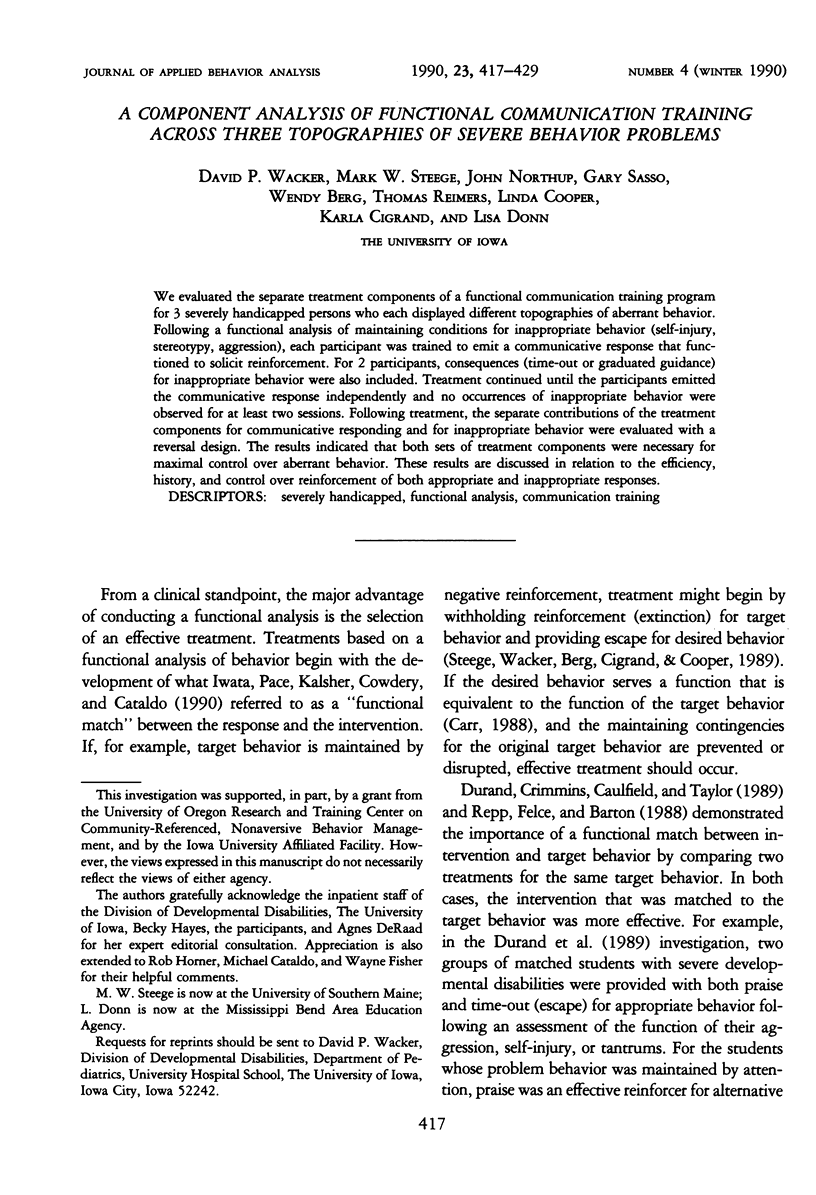
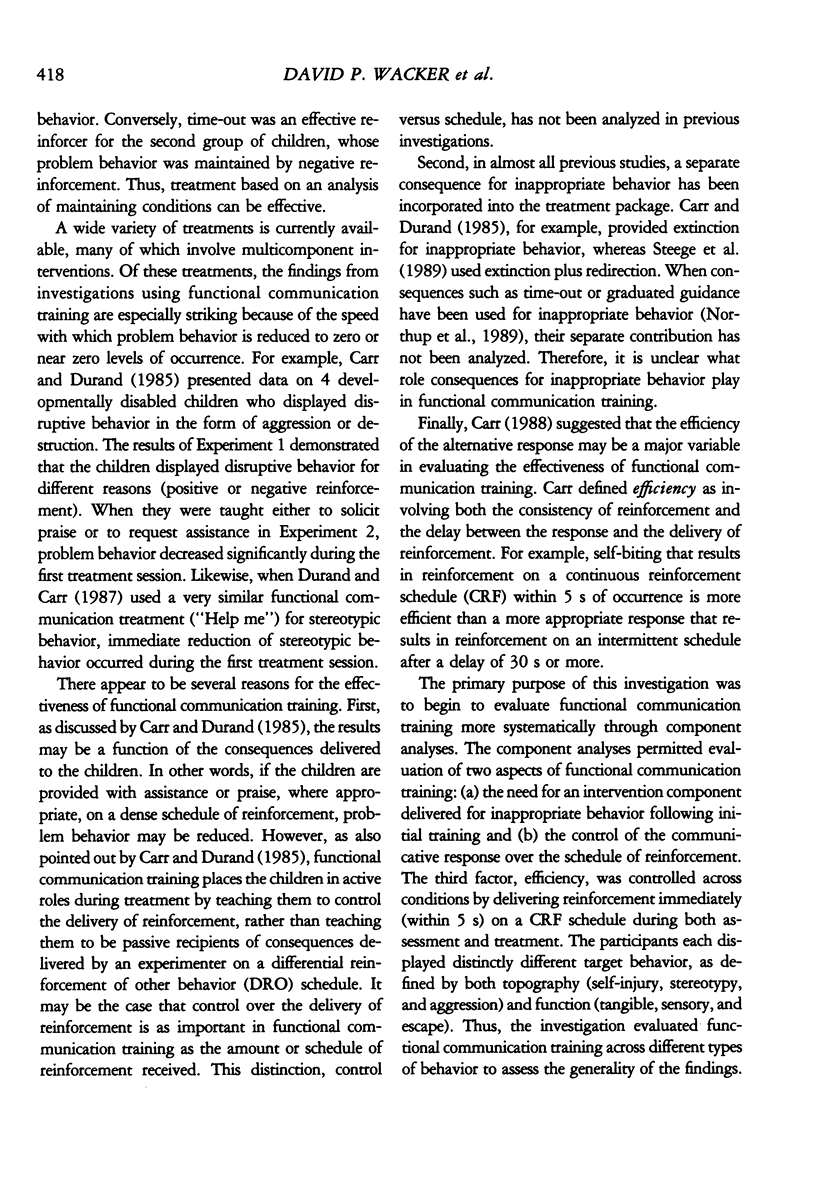
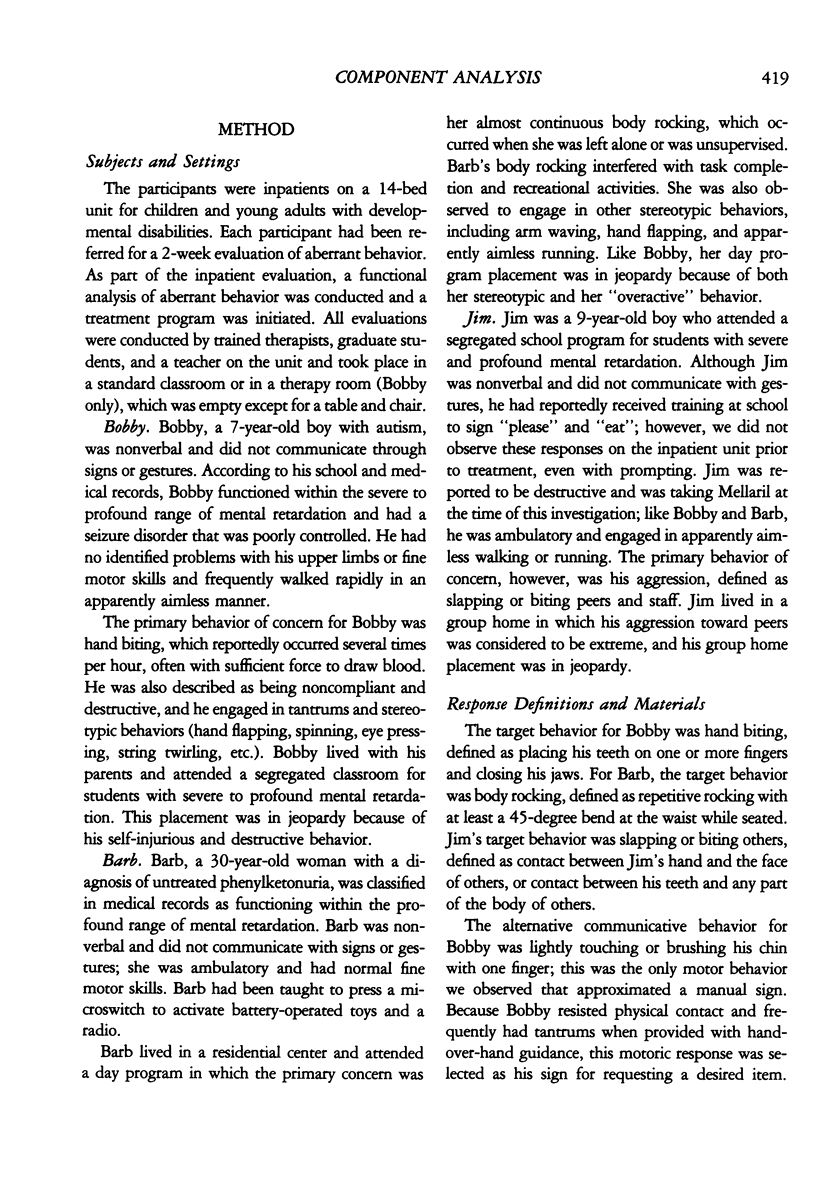
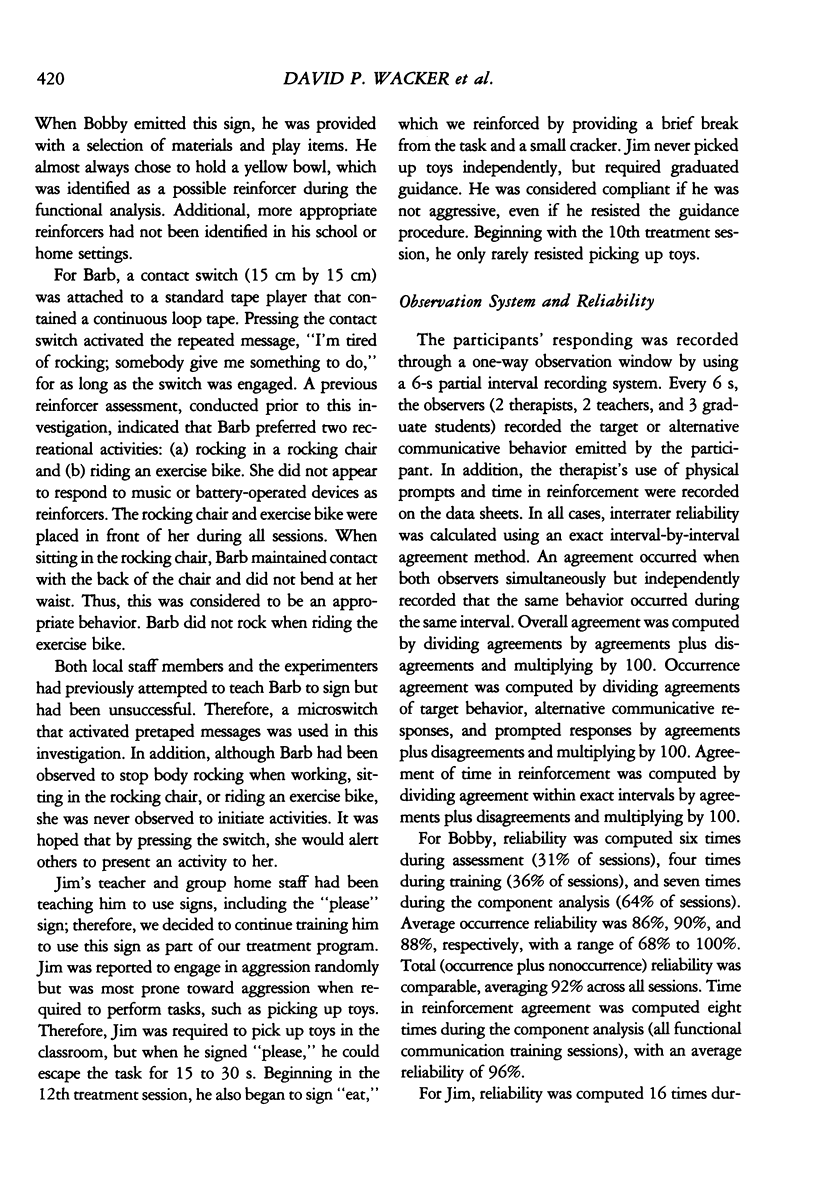
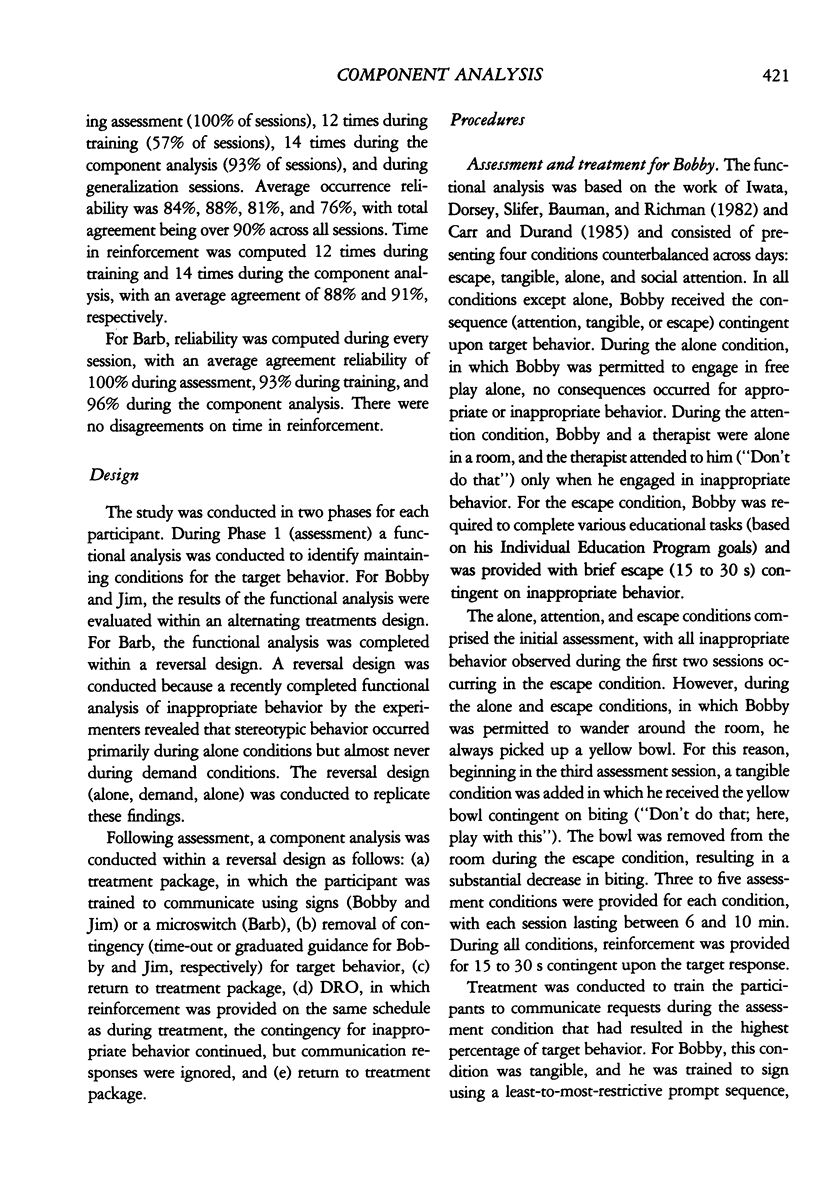
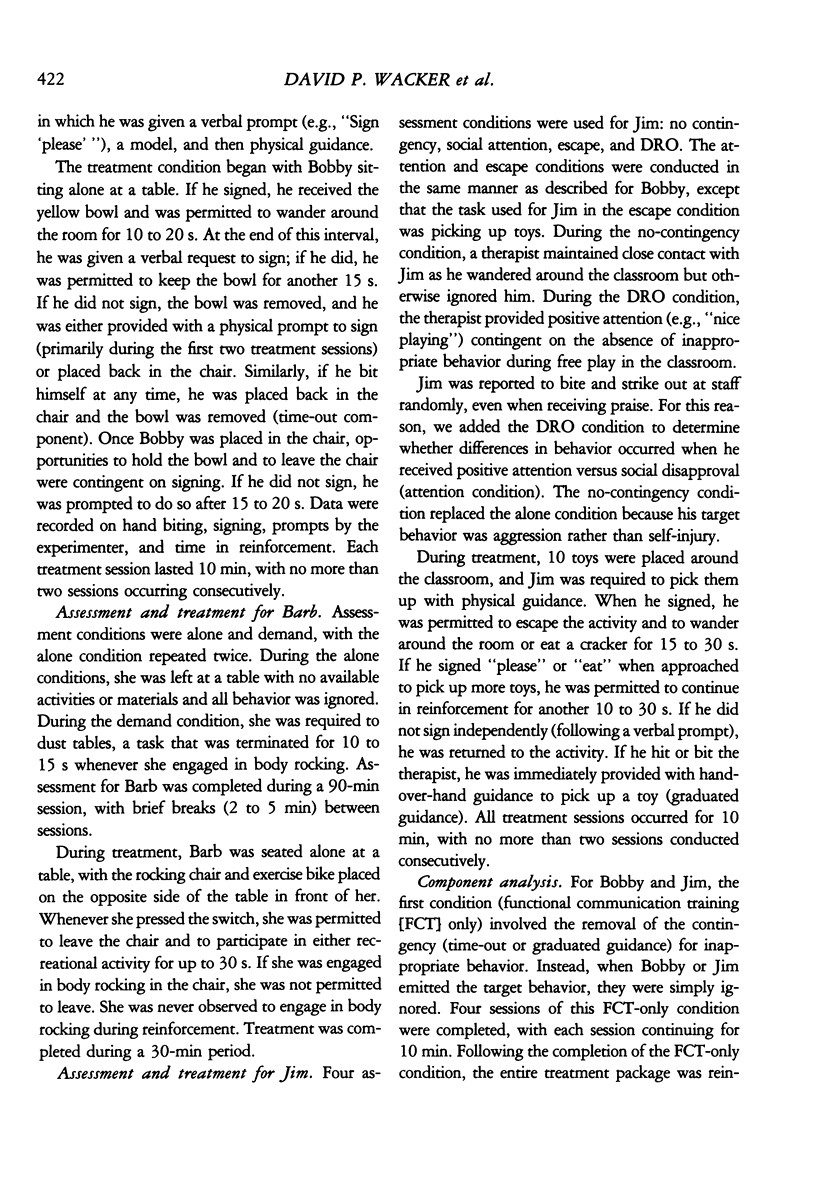
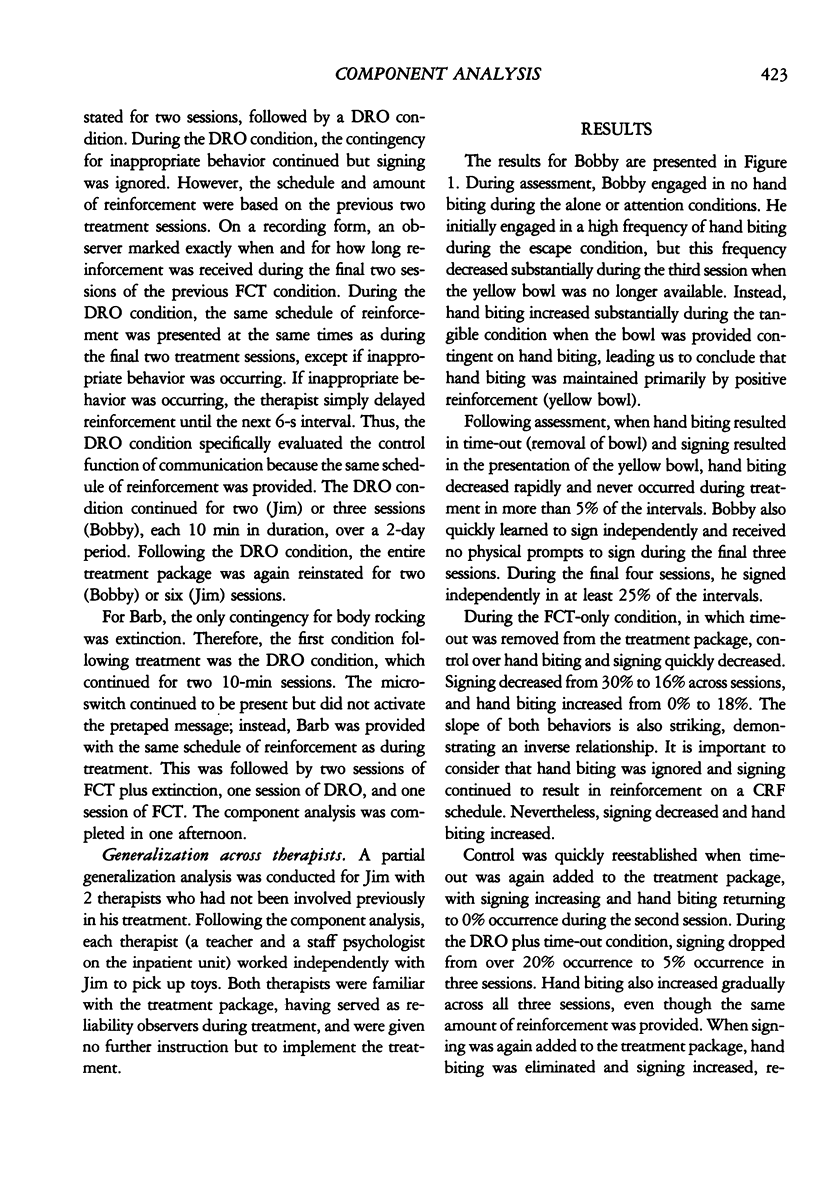
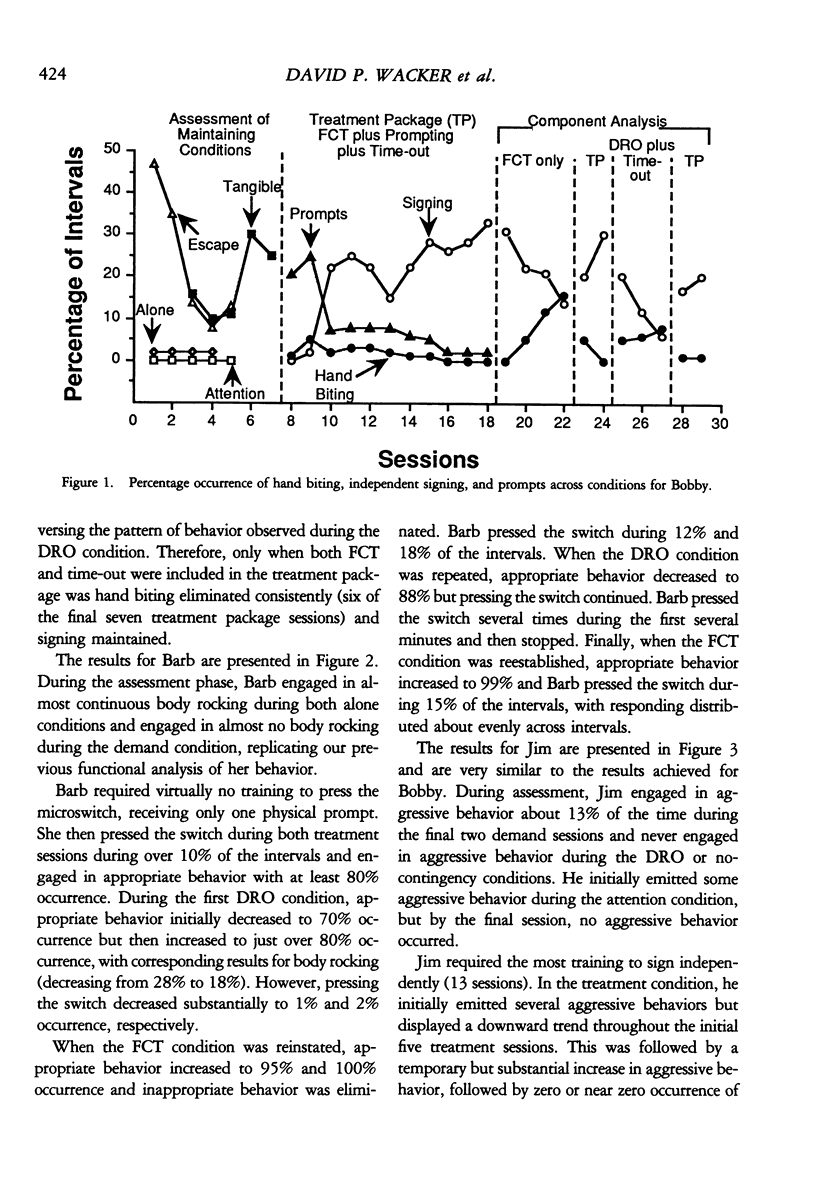
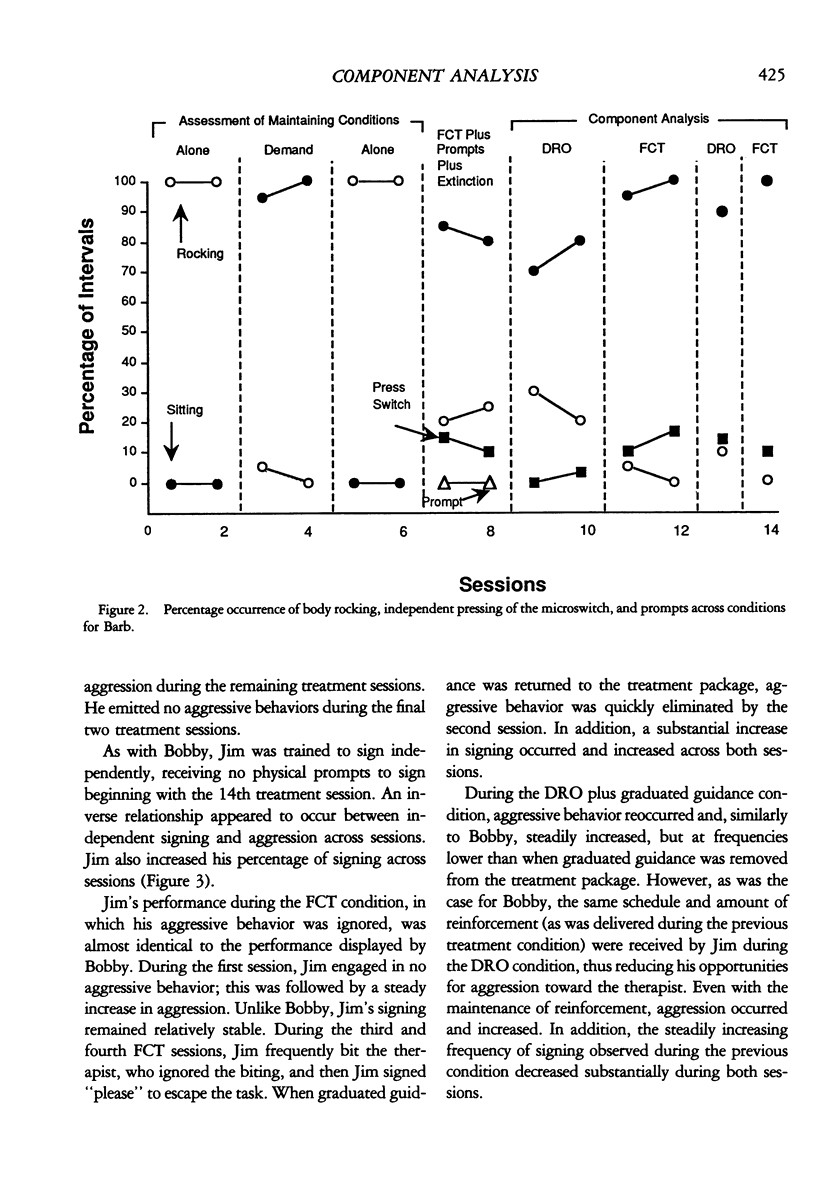
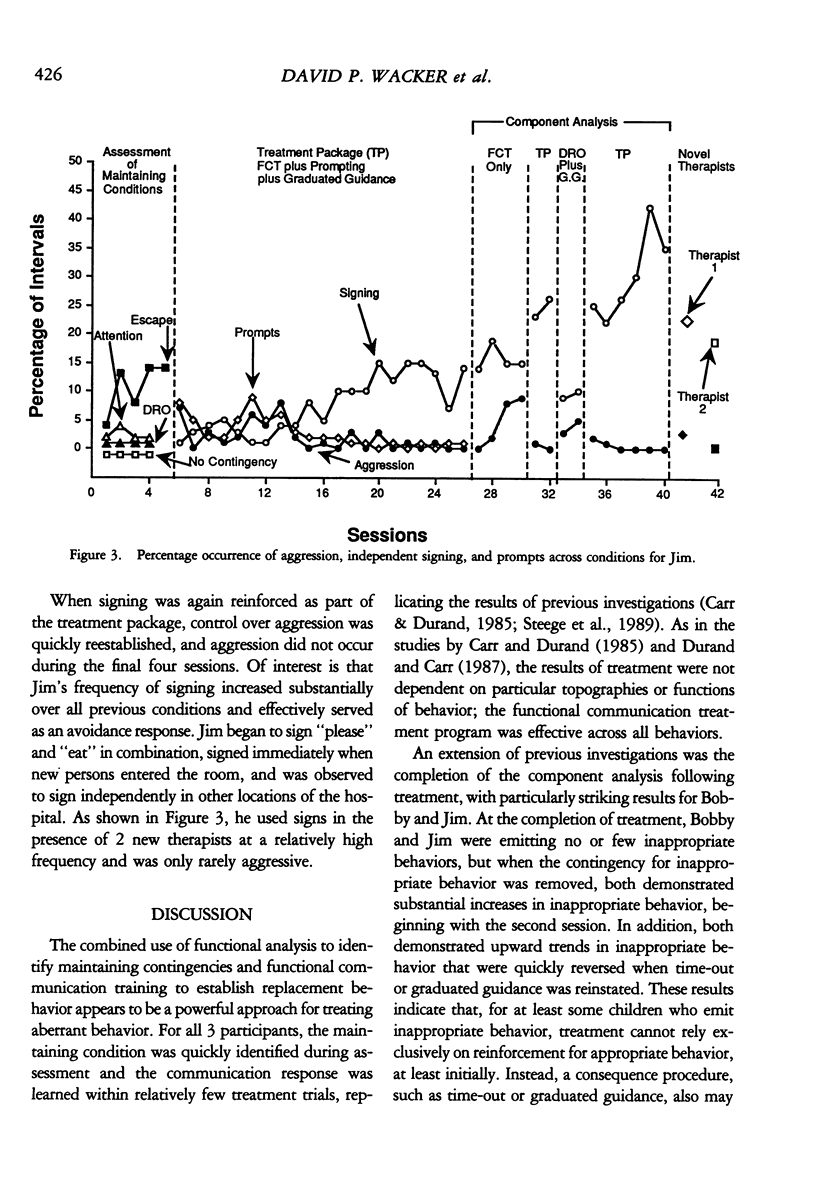
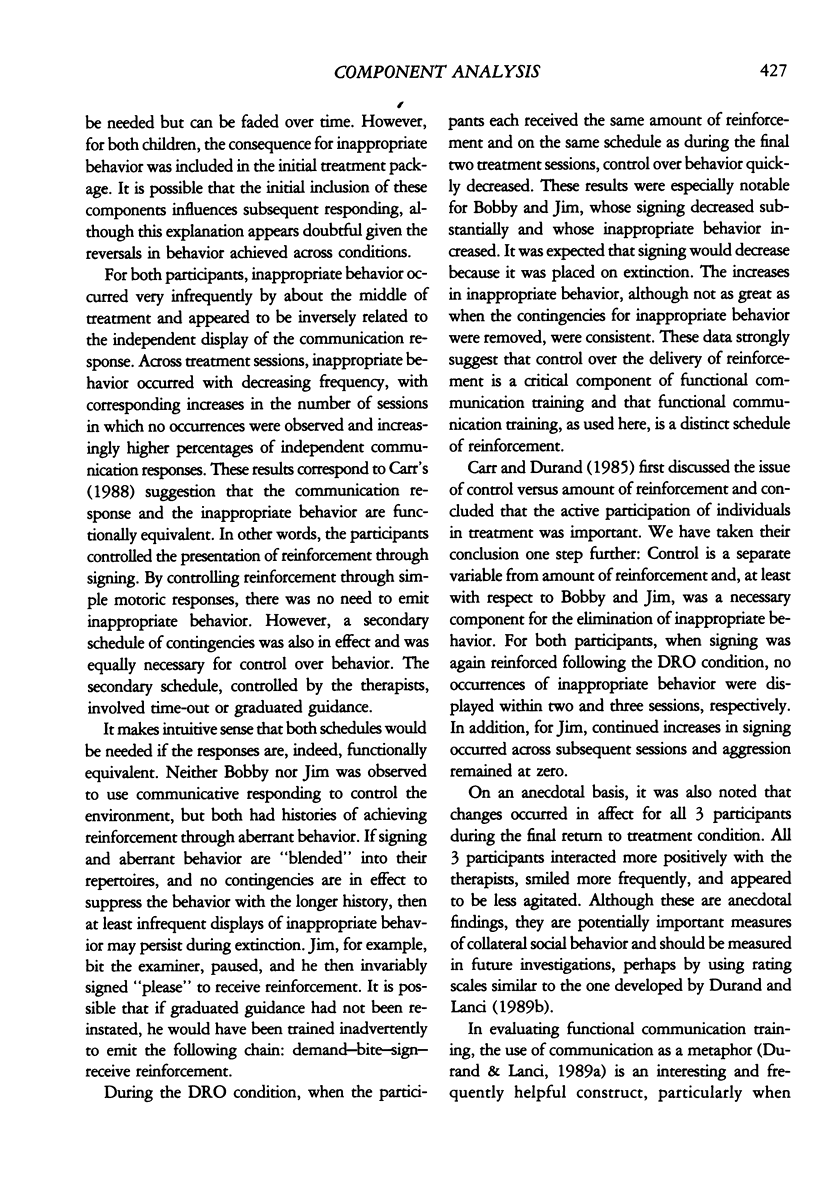
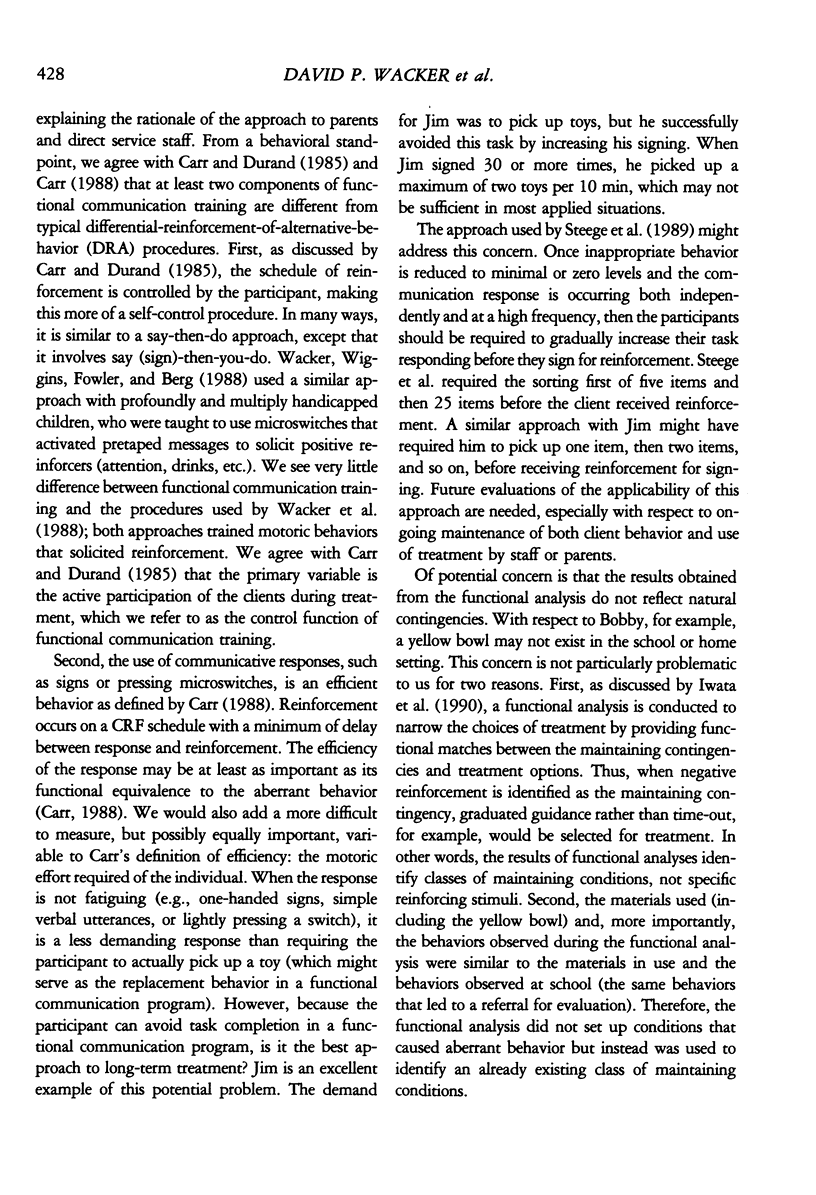
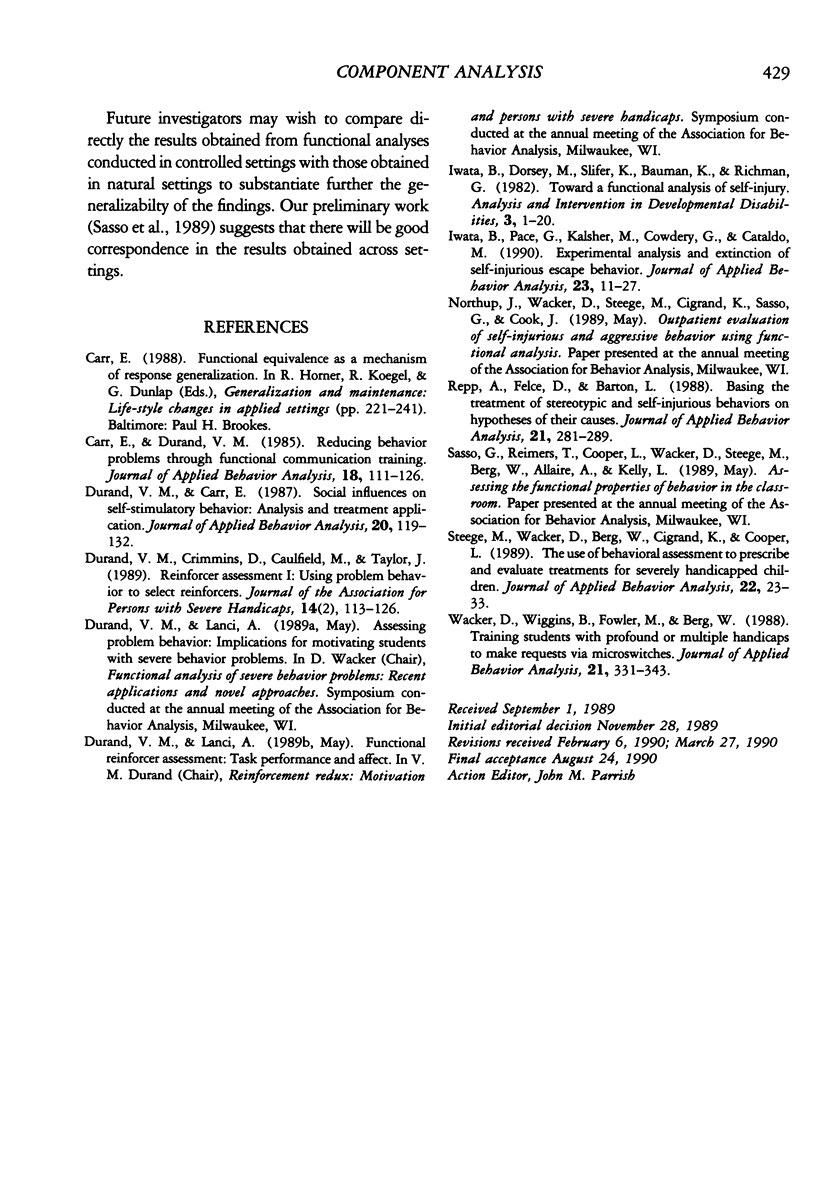
Selected References
These references are in PubMed. This may not be the complete list of references from this article.
- Carr E. G., Durand V. M. Reducing behavior problems through functional communication training. J Appl Behav Anal. 1985 Summer;18(2):111–126. doi: 10.1901/jaba.1985.18-111. [DOI] [PMC free article] [PubMed] [Google Scholar]
- Durand V. M., Carr E. G. Social influences on "self-stimulatory" behavior: analysis and treatment application. J Appl Behav Anal. 1987 Summer;20(2):119–132. doi: 10.1901/jaba.1987.20-119. [DOI] [PMC free article] [PubMed] [Google Scholar]
- Iwata B. A., Pace G. M., Kalsher M. J., Cowdery G. E., Cataldo M. F. Experimental analysis and extinction of self-injurious escape behavior. J Appl Behav Anal. 1990 Spring;23(1):11–27. doi: 10.1901/jaba.1990.23-11. [DOI] [PMC free article] [PubMed] [Google Scholar]
- Repp A. C., Felce D., Barton L. E. Basing the treatment of stereotypic and self-injurious behaviors on hypotheses of their causes. J Appl Behav Anal. 1988 Fall;21(3):281–289. doi: 10.1901/jaba.1988.21-281. [DOI] [PMC free article] [PubMed] [Google Scholar]
- Steege M. W., Wacker D. P., Berg W. K., Cigrand K. K., Cooper L. J. The use of behavioral assessment to prescribe and evaluate treatments for severely handicapped children. J Appl Behav Anal. 1989 Spring;22(1):23–33. doi: 10.1901/jaba.1989.22-23. [DOI] [PMC free article] [PubMed] [Google Scholar]
- Wacker D. P., Wiggins B., Fowler M., Berg W. K. Training students with profound or multiple handicaps to make requests via microswitches. J Appl Behav Anal. 1988 Winter;21(4):331–343. doi: 10.1901/jaba.1988.21-331. [DOI] [PMC free article] [PubMed] [Google Scholar]


